Are you navigating the complex world of personal injury claims? It can feel overwhelming, especially if you're unsure where to start. Crafting a clear and effective claim notice is a crucial first step in seeking the compensation you deserve. Let's dive into the essential components of a personal injury claim notice, so you can confidently take action and protect your rightsâkeep reading to find out more!
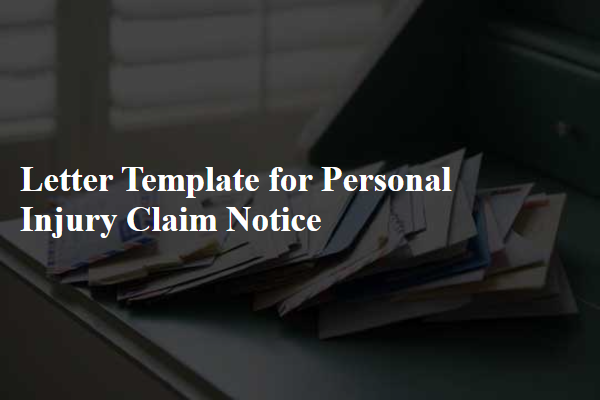
Claimant and Defendant Information
In personal injury cases, the Claimant (the individual seeking compensation) typically includes their full name, contact details, and description of the injury, while the Defendant (the individual or entity being accused of causing the injury) is identified by their name, address, and insurance information, if applicable. This information is crucial for establishing the basis of the claim and facilitating communication between the involved parties. For instance, a Claimant might detail an incident occurring on March 15, 2023, in Central Park, New York City, where they sustained a fracture due to a slip and fall caused by wet pavement, while the Defendant could be the property management firm responsible for maintaining the park facilities. Proper documentation of both parties accelerates the legal process and ensures accurate handling of the claim.
Incident Description and Details
A personal injury claim typically arises from accidents or incidents that lead to physical harm. For example, a slip and fall accident occurring on March 15, 2023, at a grocery store located at 123 Main Street, Anytown, USA, can serve as a critical basis for a claim. The incident resulted in the claimant sustaining a fracture to their left ankle after slipping on a wet floor that lacked proper signage indicating a hazard. Medical professionals documented the injury, with x-rays confirming the fracture, leading to subsequent treatments, including physical therapy sessions three times a week for two months at Anytown Rehabilitation Center. Additionally, eyewitnesses such as two fellow shoppers--Jane Doe and John Smith--can corroborate the claimant's account of the accident, solidifying evidence for the personal injury allegation against the grocery store's management for negligence in maintaining safe premises.
Medical Treatment and Expenses
Medical treatment and expenses incurred due to personal injury can significantly impact the lives of victims. Individuals may require immediate attention at facilities like hospitals, which often result in bills exceeding thousands of dollars. Specific treatments, such as physical therapy (averaging 75 dollars per session), can accumulate quickly, especially when extended over several weeks or months. Medications prescribed post-injury, such as anti-inflammatories or pain relievers, may also add to the financial burden. In many cases, diagnostic procedures, including X-rays or MRIs, can cost anywhere from 200 to over 1,500 dollars, depending on the complexity and location of the injury. Emotional distress stemming from the accident can necessitate counseling sessions, which are an additional expense. Documentation of these costs and treatment records play a crucial role in personal injury claims, providing necessary evidence for recovery.
Loss of Income and Impact on Life
A personal injury claim notice detailing loss of income and impact on life can highlight the extensive financial and emotional consequences stemming from an incident. Victims may experience significant wage loss, particularly if injuries prevent returning to work, with average income loss potentially exceeding thousands of dollars annually. Long-term effects from personal injuries can disrupt daily activities and mental health, leading to feelings of isolation or depression. Medical expenses for rehabilitation and therapy can mount quickly, with average costs reaching several thousand dollars per month depending on treatment needs. Social interactions may diminish, impacting relationships with family and friends, while loss of mobility can limit the ability to engage in previously enjoyed activities such as sports, travel, or hobbies. Documenting these elements thoroughly can create a compelling case for compensation due to the profound life changes experienced as a result of the injury.
Legal Basis and Settlement Request
Personal injury claims often arise from negligence incidents, such as car accidents (2020 U.S. statistics showing over 38,000 fatalities) or slip-and-fall events in public or private establishments. The legal basis for these claims typically involves proving liability under tort law, where the defendant (the party at fault) did not exercise reasonable care, resulting in damages (both economic and non-economic) to the plaintiff (injured individual). It is crucial to document all medical expenses (average hospital visit costs can exceed $3,000) and any lost wages due to the inability to work (potential income loss averaging $800 per week). A settlement request communicates the desire to resolve the matter amicably, avoiding lengthy litigation (which can extend over several months or years) while outlining the compensation sought based on the severity of injuries sustained, medical records, and incurable suffering related to the accident. Comprehensive documentation strengthens the claim, making it essential to provide receipts, witness statements, and police reports when submitting the claim.
Letter Template For Personal Injury Claim Notice Samples
Letter template of personal injury claim notification for accident report
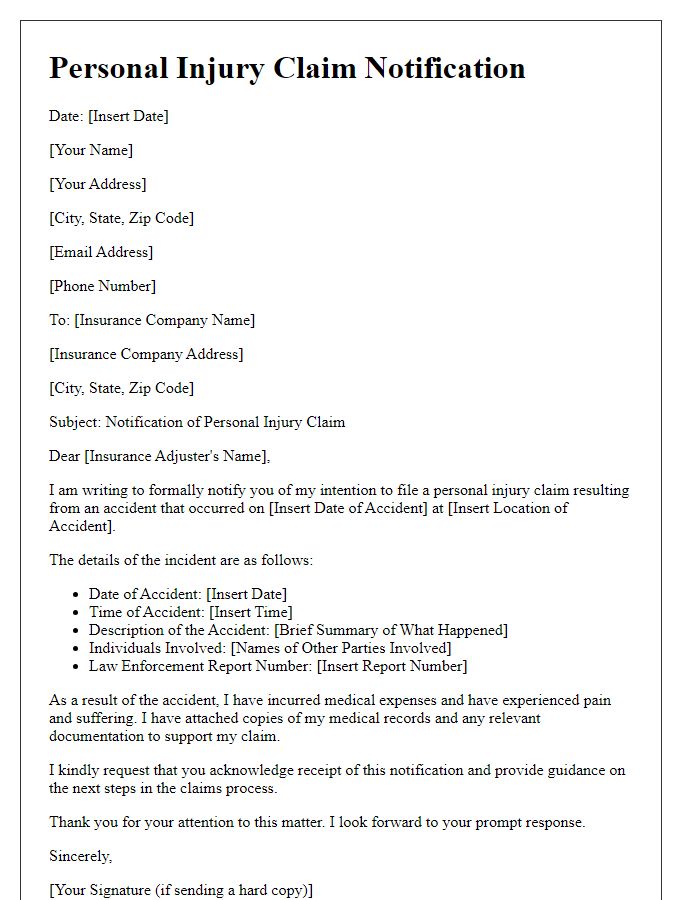

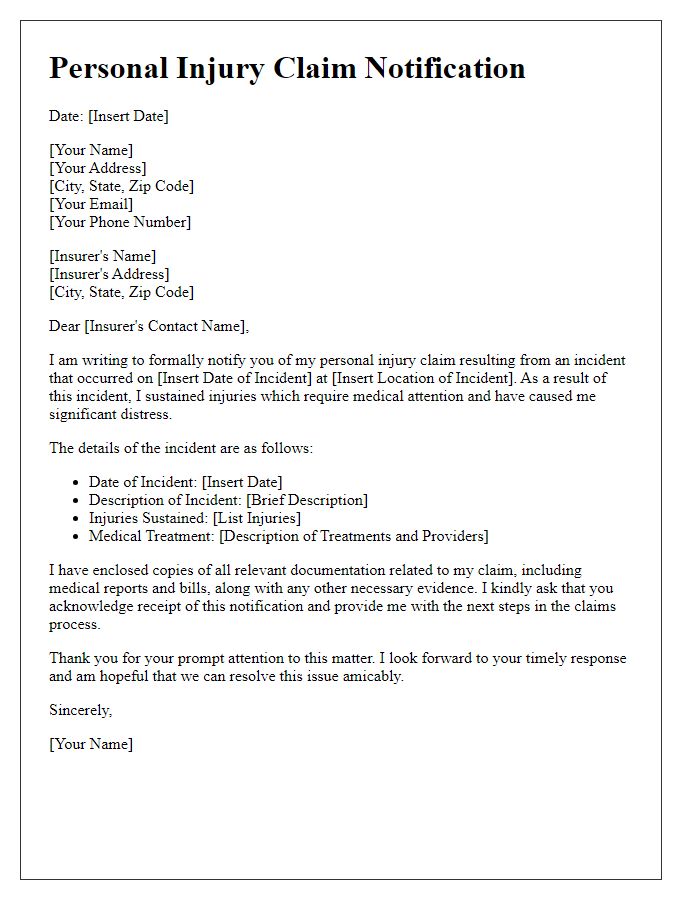
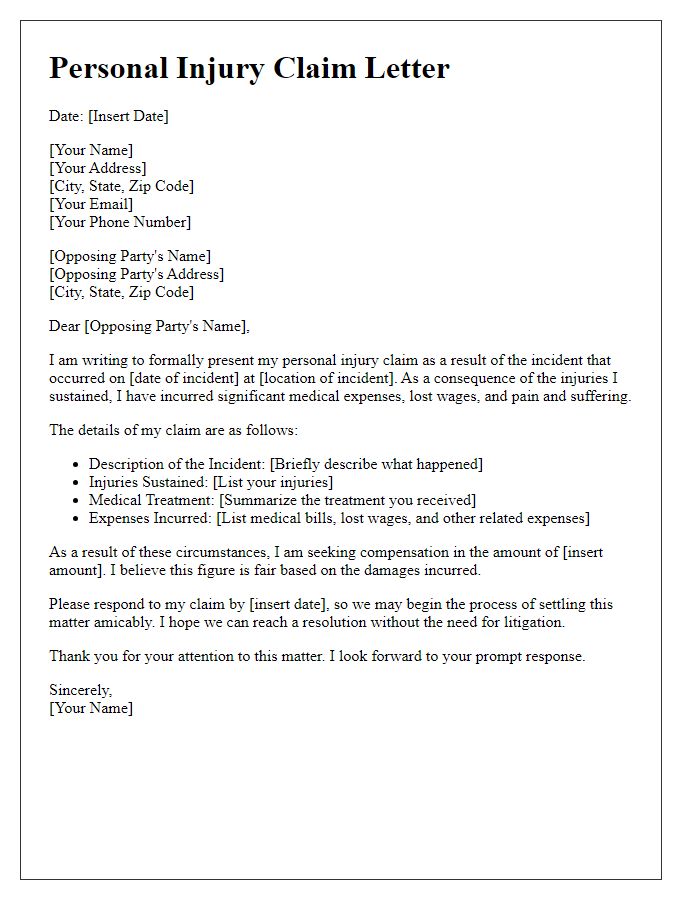
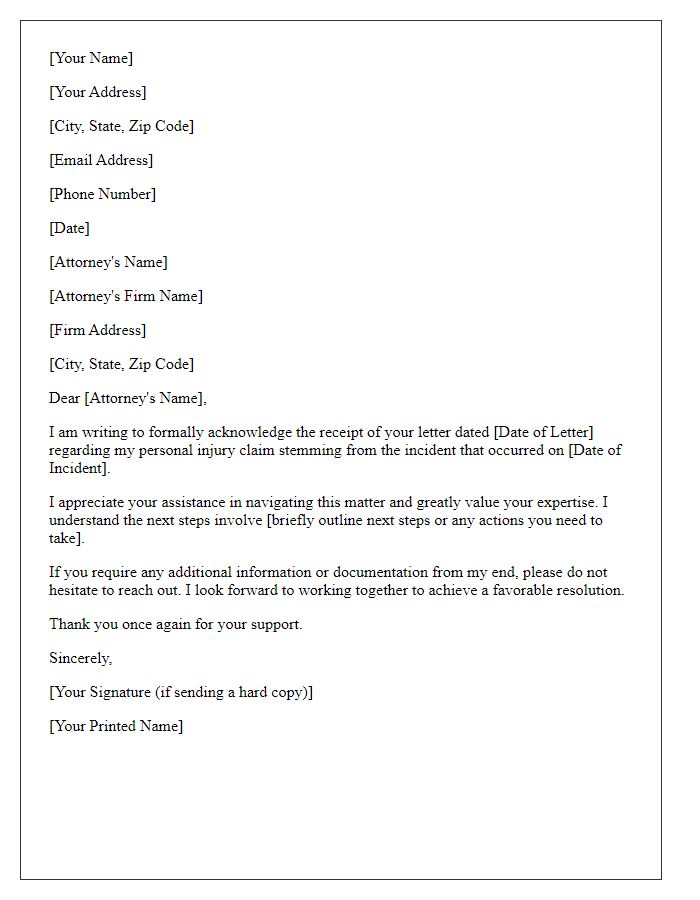
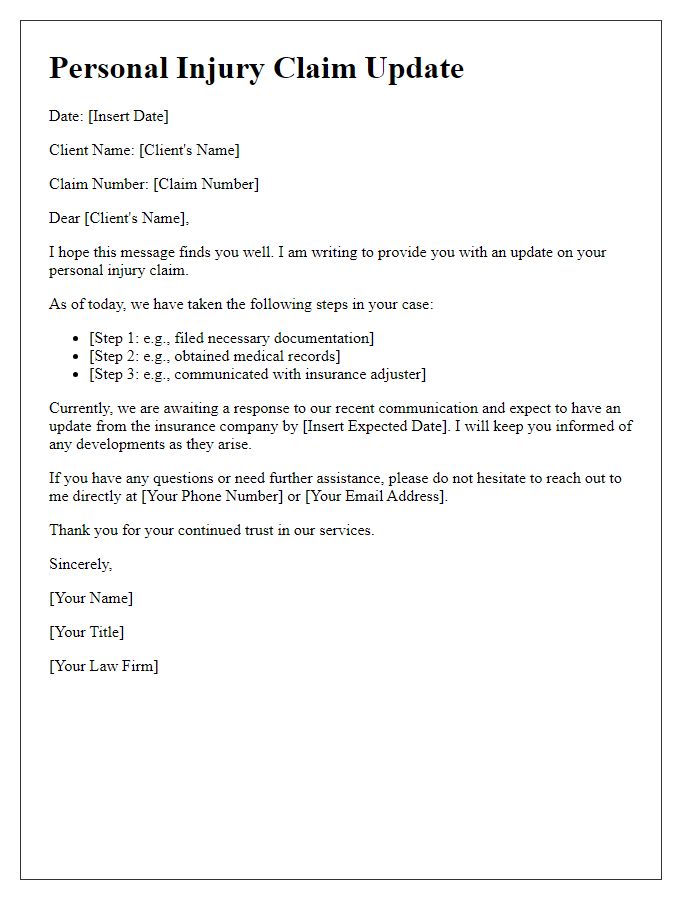
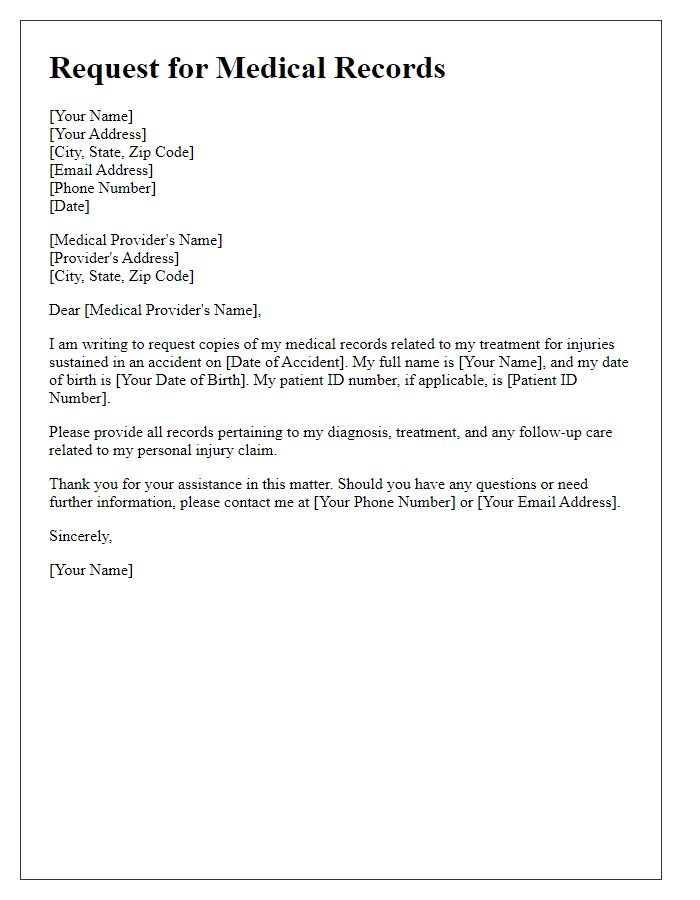
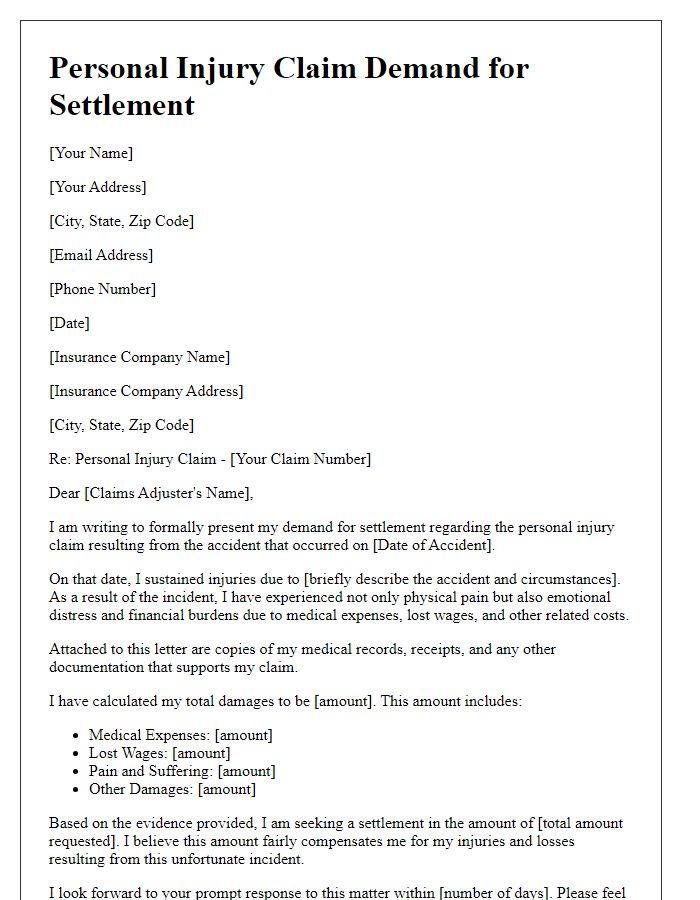
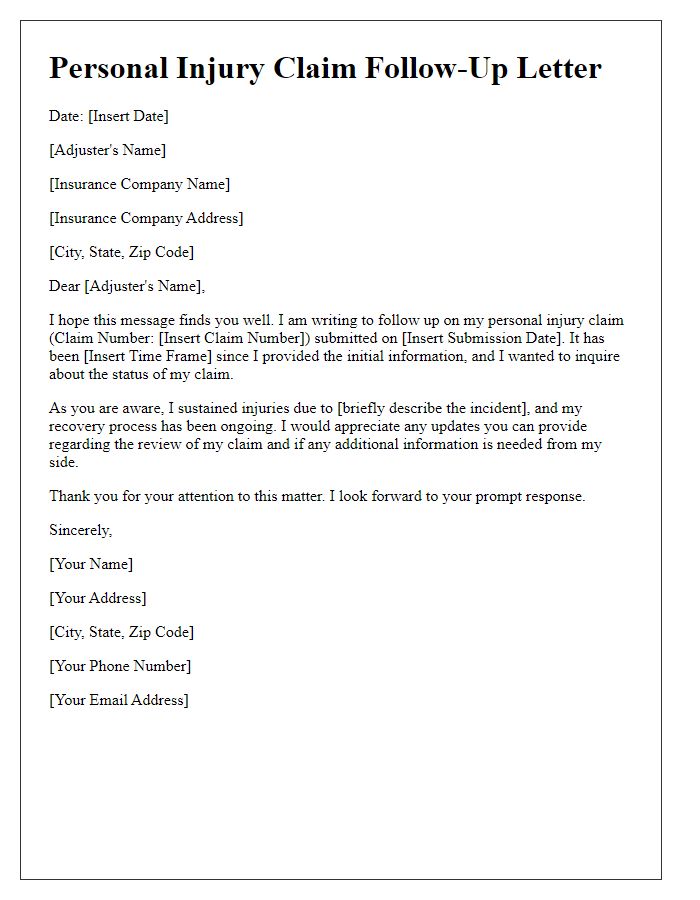
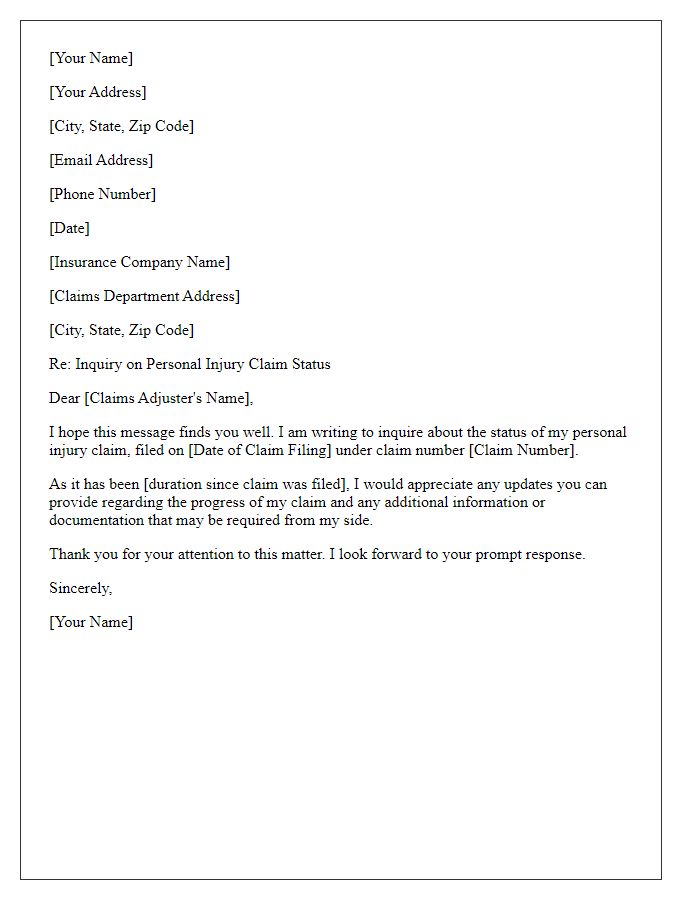
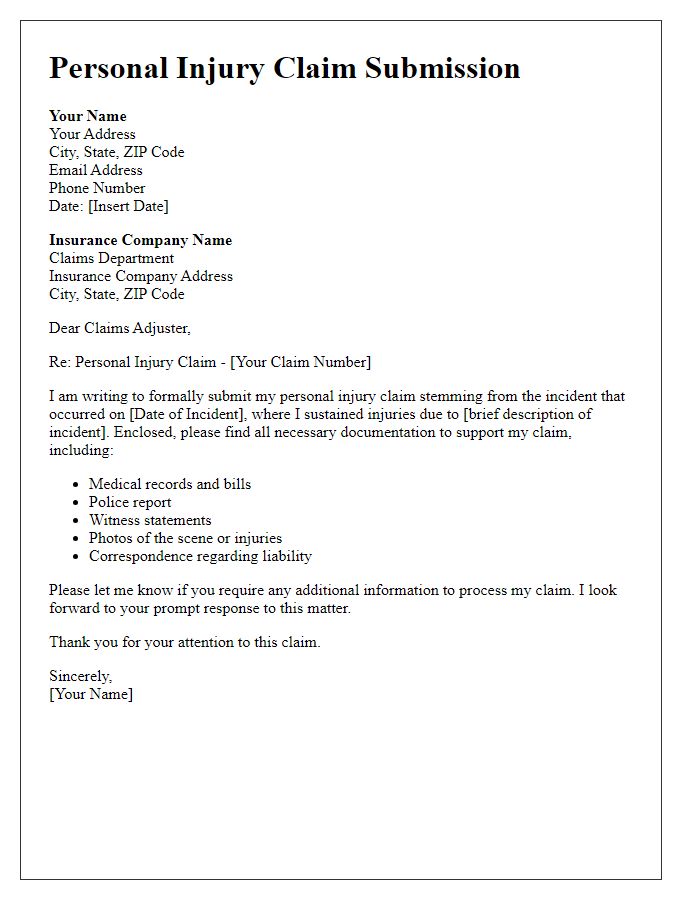


Comments